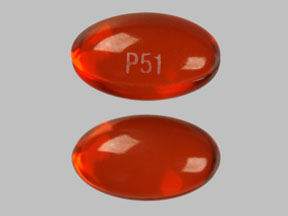
Dok Coupons & Savings Card – Discount Prices from $4.55
Brand for: Docusate sodium
My prescription
Edit
100MG, Docusate Sodium (60 Capsules)
Select pharmacy

Walgreens
$4.55
COUPON PRICE
Albertsons
$4.55
COUPON PRICEDok savings card
Show this card to your pharmacist
Walgreens
$4.55
BIN
ID
PCN
GRP
011867
LH56261EC1
HT
LABH001
Powered by
More prescriptions for constipation
More prescriptions for constipation
Price history for Dok (brand) & Docusate Sodium (generic)
60 Capsules, 100MG
Average retail price for Dok
Average retail price for Docusate Sodium
Average SaveHealth price for Docusate Sodium
Our price history data is based on aggregated prescription data collected from participating pharmacies in America. Our prescription data updates daily to reflect the latest price changes. If you notice a missing data point, it means there wasn't sufficient data available to generate a monetary value for that date.
Over the last 12 months, the average discount price of Dok is $4.26 using the SaveHealth savings card. That's an average savings of 62.96% on Dok with our discount card.
*Retail prices are based on pharmacy claims data, and may not be accurate when we don't have enough claims.
Dok (Docusate Sodium) dosage forms
Dosage Quantity Price from Per unit 100MG 60 Capsules $10.38 $0.17 100MG 1 Capsule $9.02 $9.02 100MG 6 Capsules $9.14 $1.52 100MG 10 Capsules $9.23 $0.92 100MG 12 Capsules $9.28 $0.77 100MG 14 Capsules $9.32 $0.67 100MG 15 Capsules $9.35 $0.62 100MG 18 Capsules $9.41 $0.52 100MG 20 Capsules $9.46 $0.47 100MG 28 Capsules $9.64 $0.34
| Dosage | Quantity | Price from | Per unit |
|---|---|---|---|
| 100MG | 60 Capsules | $10.38 | $0.17 |
| 100MG | 1 Capsule | $9.02 | $9.02 |
| 100MG | 6 Capsules | $9.14 | $1.52 |
| 100MG | 10 Capsules | $9.23 | $0.92 |
| 100MG | 12 Capsules | $9.28 | $0.77 |
| 100MG | 14 Capsules | $9.32 | $0.67 |
| 100MG | 15 Capsules | $9.35 | $0.62 |
| 100MG | 18 Capsules | $9.41 | $0.52 |
| 100MG | 20 Capsules | $9.46 | $0.47 |
| 100MG | 28 Capsules | $9.64 | $0.34 |
| 100MG | 30 Capsules | $9.69 | $0.32 |
| 100MG | 50 Capsules | $10.15 | $0.20 |
| 100MG | 56 Capsules | $10.29 | $0.18 |
| 100MG | 90 Capsules | $17.53 | $0.20 |
| 100MG | 100 Capsules | $17.82 | $0.18 |
| 100MG | 120 Capsules | $18.38 | $0.15 |
| 100MG | 180 Capsules | $20.07 | $0.11 |
| 100MG | 300 Capsules | $23.45 | $0.08 |
| 100MG | 1000 Capsules | $41.00 | $0.04 |
| 100MG | 10000 Capsules | $248.00 | $0.03 |
What is dok prescribed for?
DOK, also known as docusate, is prescribed as a stool softener. It is used to treat or prevent constipation by making bowel movements easier to pass.
What does Dok do?
Dok is a stool softener that helps to relieve constipation by making bowel movements easier to pass. It works by increasing the amount of water the stool absorbs in the gut, making the stool softer and easier to pass.
Using the SaveHealth discount card, what is the price of Dok without insurance?
Using the SaveHealth discount card, the price of Dok without insurance is $4.55.
What is the price of Dok at Walgreens?
The price of Dok at Walgreens is $4.55.
